Safety
Designed to protect
With its 5-star Euro NCAP safety rating, Polestar 2 builds on decades of groundbreaking safety research and shared engineering knowledge with Volvo Cars. It comes equipped with the latest protective and preventive technology, ready to intervene when needed.

Radars, cameras and sensors
Polestar 2 uses three radar units, five cameras and twelve ultrasonic sensors to monitor its environment. The car’s Active Safety Domain Master computer processes their input to classify different road users and traffic situations, and help prevent collisions.

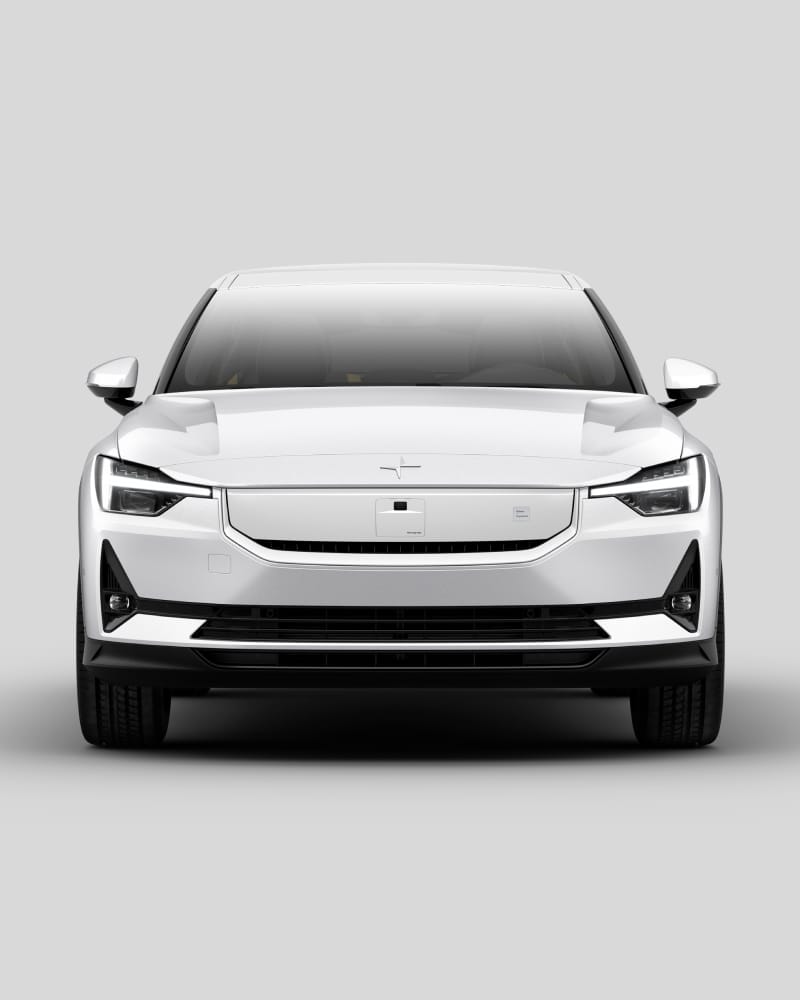
SmartZone
As Polestar 2 doesn’t need a grille to breathe, it’s been replaced by the SmartZone, housing a camera and a powerful, heated radar. It allows the car to detect other road users and potentially hazardous situations, assisting the driver in all weather and visibility conditions.
Blind Spot Information System
The Blind Spot Information System (BLIS) detects vehicles that are about to pass and flashes a warning light in the frameless mirrors. If the driver continues to switch lanes, the steer assist function guides Polestar 2 back into the lane it was in.
Lane departure prevention
Run-off Road Mitigation
Less risk of leaving the road. If Polestar 2 accidentally strays towards the road shoulder, Run-off Road Mitigation helps steer the car back at speeds between 65 and 140 kph. In case the car leaves the road surface, the system will apply the brakes to minimise a potential collision. The driver can override the steering assistance at any time.
Lane departure prevention
Lane Keeping Aid
Active between 65 and 200 kph, Lane Keeping Aid corrects the course of the car if it comes close to crossing a lane marking without indicating. If the steering intervention doesn’t correct the course enough, a warning also sounds. The system can be turned on and off via the centre display.
Lane departure prevention
Oncoming Lane Mitigation
If Polestar 2 crosses a lane marking and heads into the path of an oncoming vehicle without the driver responding, Oncoming Lane Mitigation issues audible and visible warnings, and helps to steer the car back. Oncoming Lane Mitigation works between 60 and 140 kph and can always be deactivated by the driver.
Parking sensors and assistance
Make light work of tight spots. Polestar 2 uses its cameras and sensors to help make navigating narrow streets, corners, and parking spaces easier and safer for those inside and outside the car.

Parking assistance
Cross Traffic Alert with auto brake
When reversing out of a driveway, parking space or around a corner, Cross Traffic Alert warns about incoming cars, cyclists, and pedestrians. If the driver continues to reverse, Polestar 2 automatically applies the brakes.
Parking assistance
360° and rear-view cameras
When manoeuvring, Polestar 2 can show a bird’s-eye view of its surroundings on the centre display. Four cameras provide 360° vision, centred around a virtual image of the car to help the driver navigate tight spaces.
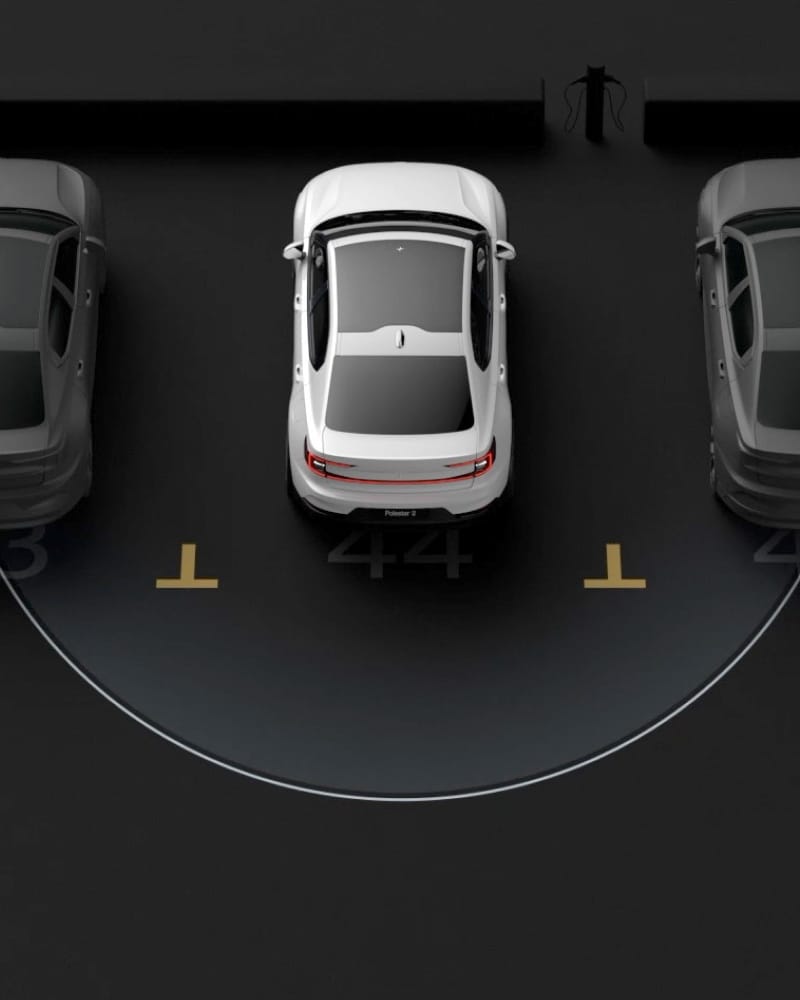
Parking assistance
Park Assist
Polestar 2 comes with Park Assist as standard, measuring the distance to obstacles at the front, rear and sides of the car. The system provides visual and audible guidance while manoeuvring in tight spaces.
Adaptive Cruise Control
Cameras and radars monitor Polestar 2’s surroundings and help the car to maintain a safe road position. Adaptive Cruise Control adjusts speed according to the speed and distance of the vehicles in front, while Pilot Assist makes gentle steering adjustments to keep Polestar 2 centred in the lane. Cruise Control and adjustable Speed Limiter are included as standard.
Adaptive Cruise Control is available with the Pilot pack.
Driver Alert Control
Polestar 2 helps its driver to stay sharp. Driver Alert Control uses a camera to track the car’s path in relation to the lane markings and activates audible and visual alerts if it detects signs of driver drowsiness or distraction.
Warning systems
Rear Collision Warning and Mitigation
Rear Collision Warning and Mitigation checks for vehicles behind Polestar 2 and calculates the risk of collision. If a car comes too close, it rapidly flashes all the indicators. If it senses that an accident is imminent, the system pre-tensions the safety belts and applies the brakes.
Warning systems
Road Sign Information
A car that knows the signs. The Road Sign Information system recognises and displays speed limit and other road signs on the driver display. It will also alert the driver if the speed limit has been exceeded or if there are speed cameras nearby.
Intelligent lighting
Polestar 2 uses camera sensor technology to adjust the headlights to the car’s surroundings, providing optimal illumination while reducing driver effort.
Pixel LED headlights with adaptive high beam
Controlled by a front-mounted camera, the 84 Pixel LEDs in each headlight are switched on and off individually to adjust the beam to light and traffic conditions. They can shade out up to five areas in front of the car, enhancing visibility without blinding other drivers.
Available with the Pilot pack.
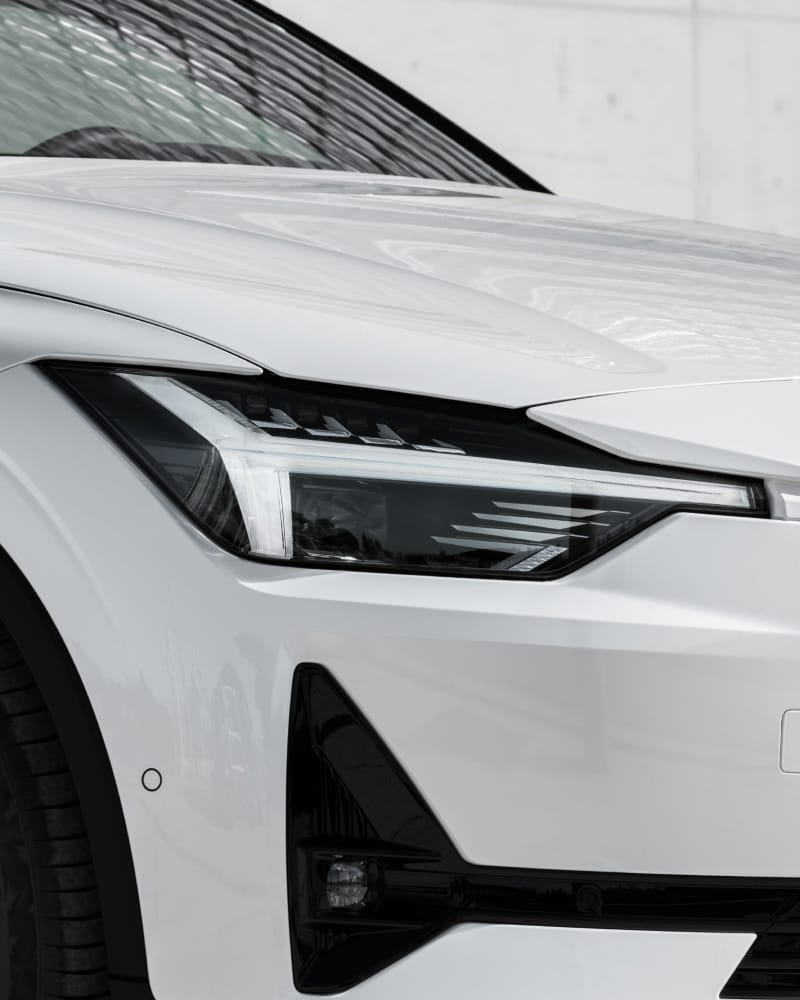
Active High Beam
Illuminate without dazzling. As standard, Polestar 2 comes with Active High Beam technology, sensing the headlights of approaching vehicles, or the taillights of cars directly ahead. Upon doing so, the headlights automatically switch from high beam to low beam.
Battery safety
The Polestar 2 battery pack is contained within a steel and aluminium frame to reduce the risk of damage in the event of a collision. A Severe Partial Offset Collision block on either side lowers the chance of objects heading for the battery if the car’s front end is hit at an angle.
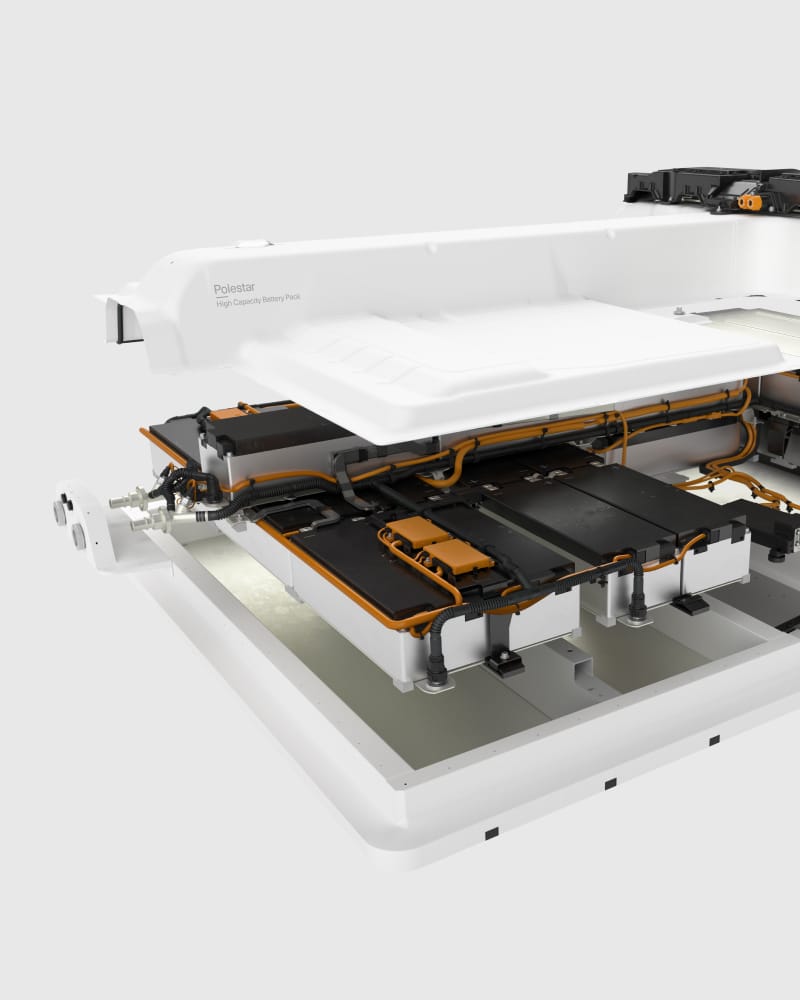
Electronic battery protection
If Polestar 2 detects that the car has been in a collision, its advanced safety technology immediately takes action. The battery pack’s high voltage system is automatically disconnected from the rest of the car, significantly reducing the risk of damage to the circuitry.
Post-impact protection
Polestar 2’s passenger compartment is constructed using ultra-high strength steel to protect occupants in accidental impact situations. In the event of a collision, sensors trigger frontal airbags, side airbags and inner side airbags, providing individual protection and reducing the risk of injury to the driver and the front passenger.

Structural safety
The steel and aluminium safety cage provides optimal protection to occupants during an accident. The Front Lower Load Path is designed to absorb the energy of a head-on collision, reducing the risk of injury to passengers and the deformation of the battery pack.
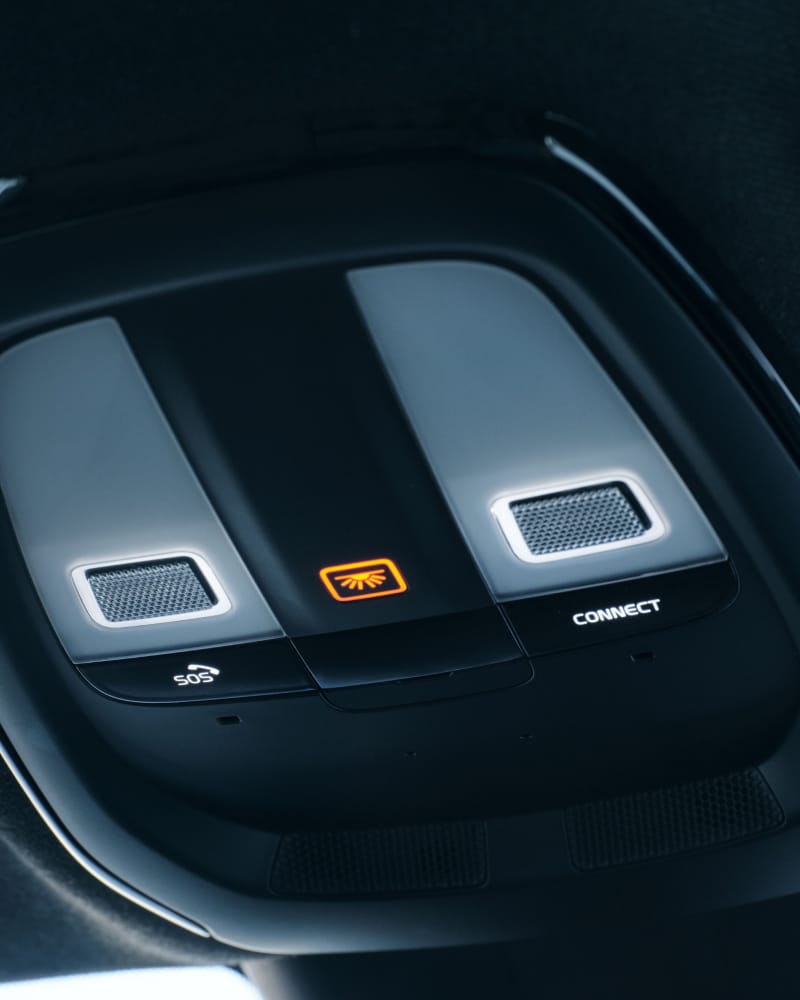
Direct assistance
The overhead console includes two buttons that can make direct calls in case of a breakdown or an accident. The Connect button is used to reach Polestar Assistance for events like a flat battery, or a puncture. The SOS button is intended for emergency situations such as accidents. In case of a severe accident, Polestar 2 automatically calls for help.
